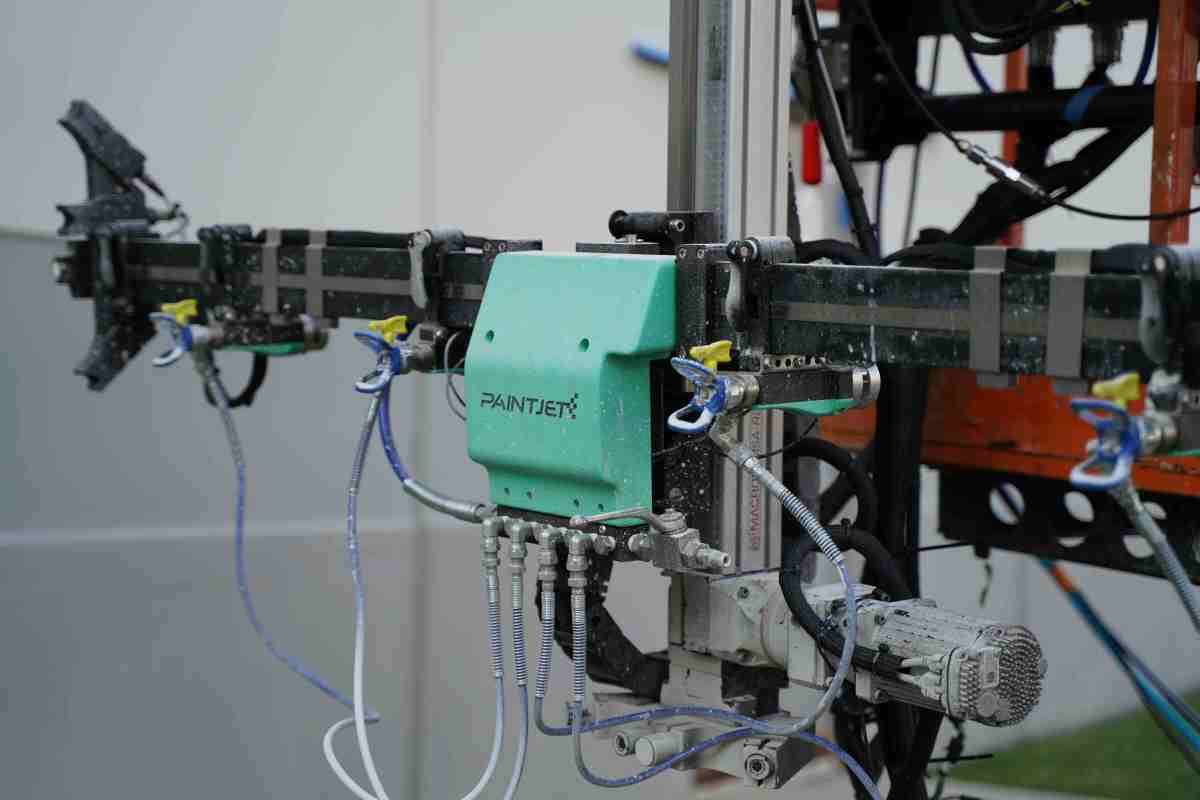Construction may well prove to be the next major focus for robotics investment. Here in the States, the $2 trillion industry employs around eight million people — that’s nearly one New York City. Even in financial boom times, however, these jobs can be difficult to keep filled, owing to physical demands and other potential dangers. […]
© 2023 TechCrunch. All rights reserved. For personal use only.
Construction may well prove to be the next major focus for robotics investment. Here in the States, the $2 trillion industry employs around eight million people — that’s nearly one New York City. Even in financial boom times, however, these jobs can be difficult to keep filled, owing to physical demands and other potential dangers.
Industrial painting is well primed for automation. After all, a good bit of heavy machinery is involved in larger projects. As evidenced from videos released by PaintJet, those sorts of older technologies remain intact here — albeit with an automated twist. Announced in October, the Nashville startup’s Bravo robotic painter looks more or less like a mobile elevated work platform (cherry picker).
CEO Nick Hegeman tells TechCrunch, that in spit of looking like a fairly standard piece of heavy machine, “We have created 100% of the robotic system. The parts that are from industry suppliers are the paint hoses, nozzles and pumps.” He adds, “We connect non-invasively to the platform and are able to control both the lift and our robotic system. This allows us to scale with the widely established network of equipment rental providers.”
Today, the firm is announcing a $10 million Series A, led by Outsiders Fund and featuring Pathbreaker Ventures, MetaProp, Builders VC, 53 Stations and VSC Ventures. The round follows a $3.5 million seed led by Dynamo Ventures and brings its to-date funding up to $14.75 million.
Image Credits: PaintJet
Co-founder and CEO Nick Hegeman is — naturally — framing ongoing staffing issues as the heart of the raise. “It’s not just about automation; it’s about redefining industry standards, addressing labor shortages, and introducing cost-effective solutions that break the mold of traditional painting,” he says in a release. “I’m thankful to our investors for backing our mission and enabling us to expand both geographically and across new sectors.”
Alongside the Bravo unveiling in October, the startup also announced its Alpha Shield paint, which it claims can reduce standard wear and tear from the elements, while increasing time between repaints.
Image Credits: PaintJet
Of course, PaintJet is far from the only company vying to introduce robots to the world of industrial painting. Gray Matter offers painting arms at a number of different scales. Japanese robotic arm giant Fanuc has also introduced solutions, though they can’t currently reach the heights of the sorts of buildings PaintJet is tackling with Bravo.
The startup is targeting construction companies as its primary userbase. Its client list currently includes Prologis, Clayco, Layton Construction and Brinkmann Constructors.
PaintJet still has a low headcount, at 24 full-time employees. Some of the new funding will go toward staffing up sales and operations. It also finds the company moving its headquarters from Nashville to Virginia, “to support our entry in the marine business, and increasing engineering headcount to scale our technology stack for wider distribution,” according to Hegeman.

Leave a Reply